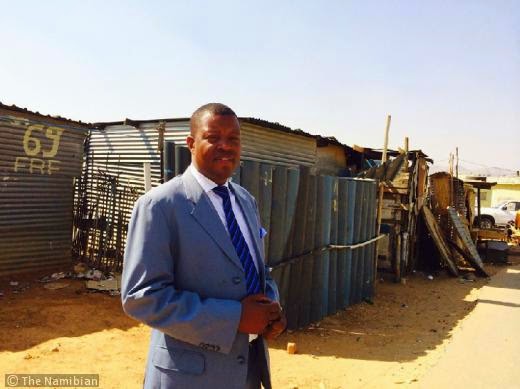The cost of building the ship as it sails
It’s no secret that the Covid-19 pandemic caught the whole world with its trousers down and its underwear exposed. Namibia is no exception, and with each passing week the fallout from the coronavirus exposes the ugly side of Namibia: the inequality in our society and just how deeply entrenched it is. The Namibian education system is an example where social and economic inequality has been badly exposed. The introduction of e-learning by the Ministry of Education during the lockdown was a bold decision, but in truth when all the variables are weighed up, they are sacrificing the Namibian child so that a lackluster government can save face.
E-learning has massive benefits, one being that kids get to learn in the comfort of home – that’s assuming that every child has a comfortable home. Another advantage is that you don’t need a physical classroom, kids can learn from a location that is geographically removed from that of their teacher – that’s assuming that there is internet connection in the most remote of locations. E-learning allows flexibility in terms of learning capability, there is something for every type of learner and it incorporates audio visual presentation, which most learners respond better to compared to the traditional chalkboard and note book method. This assumes that every single educator is tech savvy – which is a huge assumption. All you need to access e-learning is a device (laptop, tablet, phablet, smartphone) and a stable internet connection. Now this is perhaps the most audacious assumption and the one that completely ignores socio economic disparity in a country with one of the world’s highest Gini Coefficients. This one assumption breeds so many others: it assumes that every parent can afford a smart device, every parent can afford internet at home or purchase data weekly, it assumes that every parent is literate. Those are a lot of assumptions, and as we know, assumption is the mother of all screw ups! Those are all the assumptions that have to be true for most learners to be able to access e-learning, and if the majority of learners cannot access it as the Minister admitted (only 2% can), then is it really prudent to implement it? There is a reason why things are tested first before they are put into action.
As a millennial for the first time in my life I am opposed to the full implementation of technological tools in education, because unfortunately, when the pros and cons are equally weighed, this decision heavily advantages those who in the current system are already advantaged. I cannot support something that as Toivo Ndjebela exquisitely put it “punishes poor people.” It gives a privileged minority a further leg up and leaves the disadvantaged minority behind. Herein lies the problem with building the ship as it sails, most of the sailors will drown.
E-learning is the future, but are all Namibian children ready for the leap into the future? Sadly, the answer is NO! The paradox created when Tangeni in Hochland Park with WiFi and a laptop can access e-learning, but Nangula in Okahandja Park can’t, is the same as the status quo that advantages Tangeni because his parent’s social economic standing allows them to send him to a school that offers better quality of education than what Nangula’s parents can. Again, effectively punishing the poor. It gets even worse when you read stories like that in the Namibian newspaper on the 24th of April, where private school learners have a multitude of e-learning applications to choose from (better quality education), while public school learners solely depend on the limitations of WhatsApp. Again, punishing the poor.
This is what we get as a nation for a lack of political will and endorsing 10 years of decision making that was geared more towards creating instant millionaires than advancing the interests of the nation. Like bridging the digital divide and putting in place the legislation and infrastructure to make e-learning accessible to all.


Comments
Post a Comment